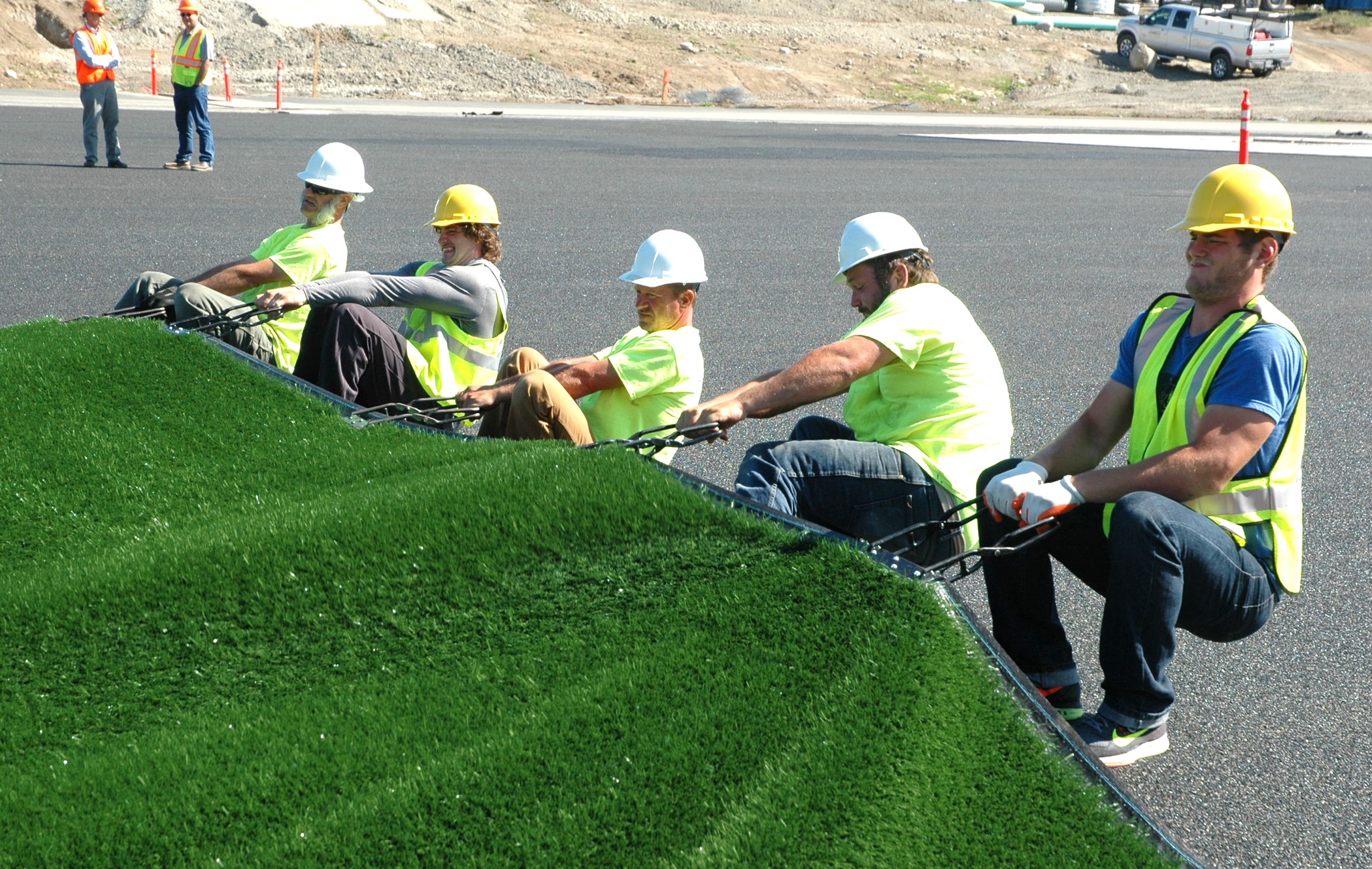ARLINGTON — In the midst of the rest of the construction taking place at Lakewood High School, the new football field is finally being put down, with some features that set it apart from the typical high school turf.
Superintendent Michael Mack explained that, rather than going with a crumb rubber field like Arlington or Marysville, Lakewood opted for a cork and sand infill system.
“Everybody plays on crumb rubber, so we’re kind of going against the grain on that one,” Mack said.
“But when we gave them a choice of crumb rubber or cork, every person we asked said they preferred cork.”
Lakewood considered everything from crumb rubber coated in paint to organic options such as coconut husks and bamboo, before Mack joined school board president Larry Bean and head football coach Dan Teeter in traveling to California to see two cork fields and one crumb rubber field.
The turf companies covered the costs of the trip, so it incurred no extra expense to the school district.
“We talked with the school districts down there, and their maintenance and athletic crews,” Mack said.
“They told us cork is cooler, which is obviously more of an issue in California, but we’ve had some pretty hot days up here lately.”
The Lakewood delegation also liked that the cork infill is not only completely environmentally friendly and non-toxic, but is also just as durable as crumb rubber.
“Of course, we’d love to play on a nice natural grass field, like we had for our varsity and junior varsity football, soccer, and track and field teams,” Mack said.
“But it just couldn’t take the wear and tear. This way, we can open our field up to junior football and other soccer teams.
“There won’t be any ruts, so it’s safer for the kids.”
Mack cited widespread concerns whether exposure to crumb rubber fields could cause cancer as another reason to go with cork.
“There’s nothing definitive, but since cork performs just as well as crumb rubber and only costs a little bit more, why take that chance with our students’ safety?” Mack said.
“It’ll be the same maintenance, with the same warranty, and no additional risk.”
Although FieldTurf’s PureFill Cork will cost an additional figure of about $47,000, Mack noted that the roughly $1.3 million project had already budgeted for overruns, and will be using a slightly less ambitious surfacing on its track to make up for it.
“We’d been looking at putting down the same sort of track surfacing that they use at the University of Washington,” Mack said.
“No other high school has that. It would have been nice, but what we will be getting is still better than most other high schools.”
Thanks to such cost offsets, Mack estimated the project is under budget and on time, and expects the field will be ready for the first football practice Aug. 19.
“By then, all the turf should be installed and all the track surfacing should be laid down,” Mack said.
“I respect our school board for making a responsible decision that set us apart from the norm,” Mack added.







